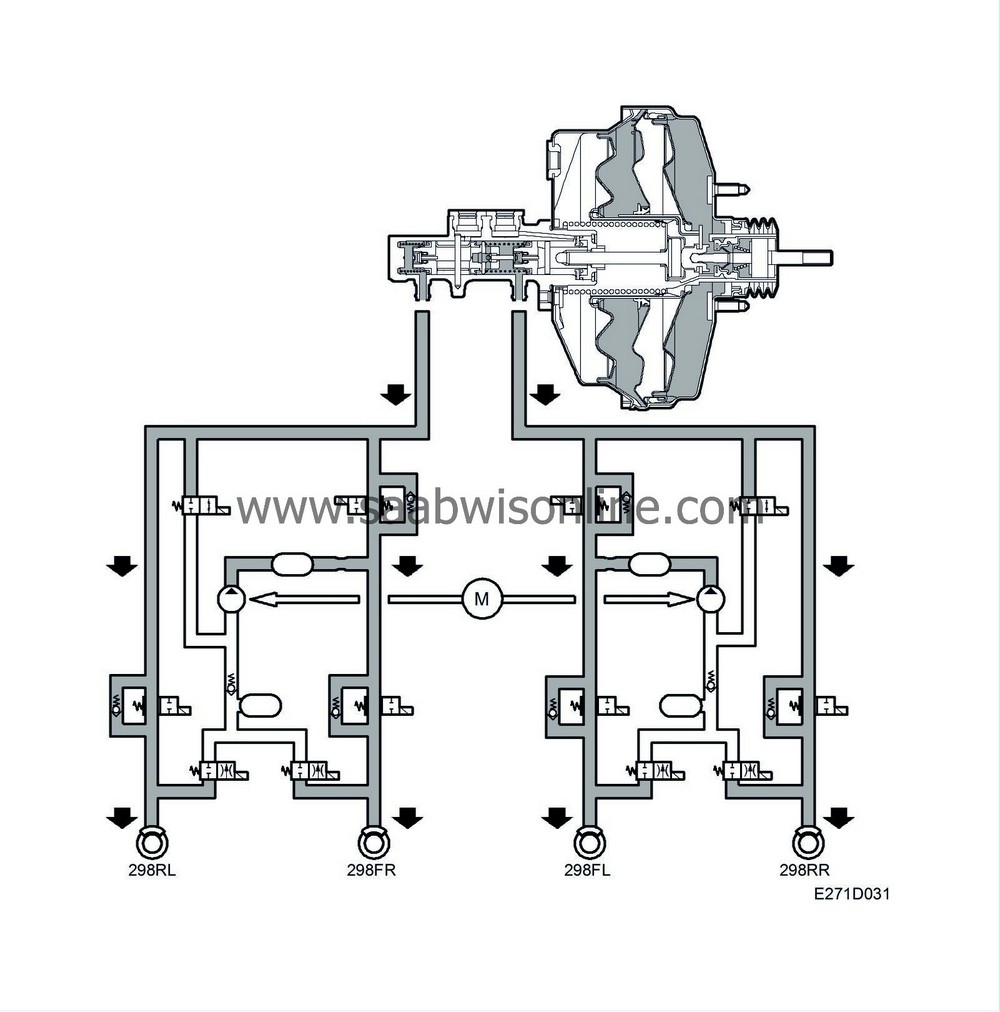PRE-RELEASE
Braking without ABS modulation
| Braking without ABS modulation |
The central valve for the primary plunger closes the return passage to the brake-fluid reservoir, and the pressure increases ahead of the plunger. The same pressure also acts on the secondary plunger, pressing it forwards and closing the its central valve.
In the hydraulic unit, the inlet valve is open and the outlet valve closed.
The hydraulic pressure in both brake circuits rises and, since the plungers have the same diameter, the pressure will be the same in both circuits in the valve block.
The pressure is propagated throughout the brake system and acts on the brake piston in each caliper. The brake pistons press the brake pads against the brake discs. When the brake pedal is released, the pistons in the master cylinder are retracted to the rest position and the central valves in the primary and secondary circuits are opened. The pressure is released and the piston in each wheel cylinder is returned to its rest position by means of the piston sealing ring.



